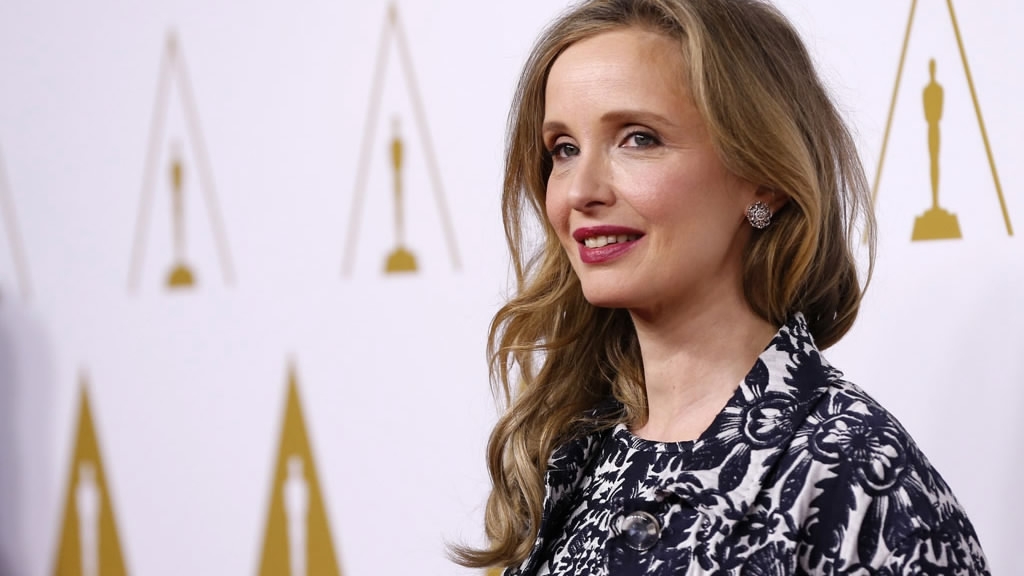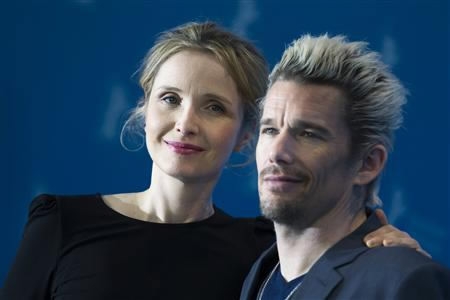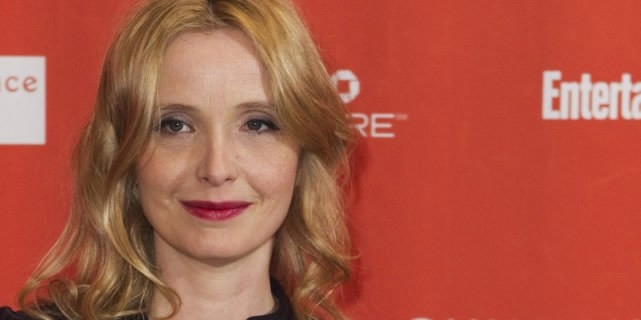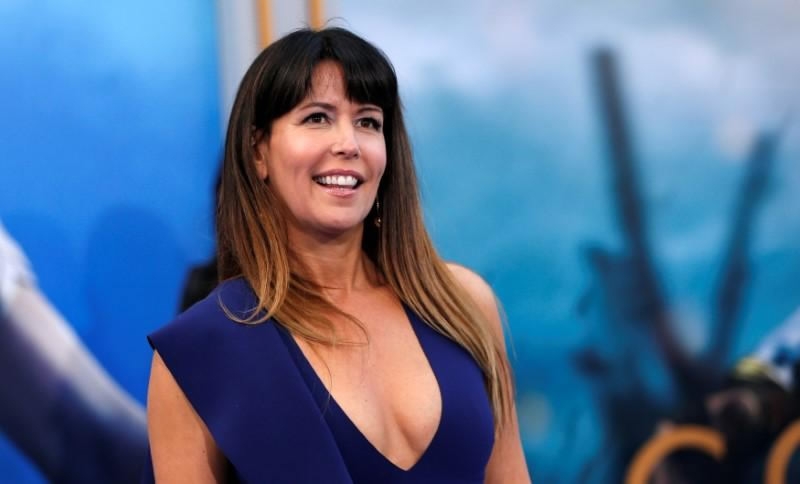
Culture
21:50, 11-Dec-2017
Julie Delpy uses raffle to fund her latest movie after 'sexist' financier pulls out
Josh McNally

At the 30th European Film Awards on December 10 in Berlin, the European Achievement in World Cinema award was given to Julie Delpy. For the first time in her career, the French actress – known for her work with Leos Carax, Krzysztof Kieslowski and Richard Linklater; for writing and directing the "2 Days In" series; for releasing a self-titled album in 2003; and for being nominated for several Cesar, European Film and Academy Awards – became a raffle host for the evening.

Julie Delpy (L) and Ethan Hawke promoting their movie "Before Midnight" at the 63rd Berlinale International Film Festival in Berlin, February 11, 2013. /Reuters Photo
Julie Delpy (L) and Ethan Hawke promoting their movie "Before Midnight" at the 63rd Berlinale International Film Festival in Berlin, February 11, 2013. /Reuters Photo
Speaking to The Hollywood Reporter last week, Delpy revealed that a key financial backer had pulled out of her latest film for “bluntly sexist” reasons. Written and (intended to be) directed by Delpy, “My Zoe” is a drama about how a divorced couple reacts when their daughter is involved in a tragedy, with a cast that includes Delpy, Richard Armitage, Daniel Bruhl and Gemma Arterton, and was supposed to begin shooting in early 2018. However, Delpy said, “If I don’t find a solution by December 15, we’ll have to push the film. I don’t want to be dramatic, it’s only a movie, but this is the shittiest situation I’ve ever been in in my professional career.”
Though she declined to name the financier or the production company they are associated with, she did reveal that an American lawyer was involved and described the financier as saying “Women directors are emotional, women are unreliable” and giving no other reasons for why he left the project a reported 20 percent short of its required budget.

Julie Delpy at the Sundance Festival. /Reuters Photo
Julie Delpy at the Sundance Festival. /Reuters Photo
With such a short time frame, Delpy resorted to extreme measures and, while receiving her European Achievement in World Cinema award, she pulled out a wad of tickets and turned her acceptance speech into a plea for funding. The raffle she was hosting that night had prizes which included bit parts in “My Zoe” and the chance to have breakfast with her the next day: “I will be entertaining. I can talk about art, film, science, history, politics, architecture, cooking, I’ll be funny if you want, I can cry, anything, anything to make my film.”
The bidding started at 100 Euros.
The news that Julie Delpy is struggling for funding comes less than a week after The Hollywood Reporter introduced “Disney’s New $100M Club” of Ava DuVernay, Anna Boden and Niki Caro, who are respectively directing “A Wrinkle in Time,” “Captain Marvel” and the live-action “Mulan” in the coming year, and the budgets for which are all over 100 million US dollars. All three directors are joining Patty Jenkins, director of "Wonder Woman" in this exclusive club and are positive about the direction of the industry, with Caro saying that “It’s important to be seen. I used to resent the title ‘female director’ because I’m a director and gender doesn’t really come into it.”

Patty Jenkins at the premiere of "Wonder Woman." /Reuters Photo
Patty Jenkins at the premiere of "Wonder Woman." /Reuters Photo
While Julie Delpy’s situation says otherwise, it’s also important to consider the subject matter and the scale of the projects in question. As with Patty Jenkins, director of “Wonder Woman,” all the projects in the “$100M Club” are large, family friendly blockbusters based on pre-existing intellectual property (IP) from which the biggest gamble is likely to be "Mulan" as, following Kenneth Brannagh’s “Cinderella” and Bill Condon’s “Beauty and the Beast” and preceding Jon Favreau’s “The Lion King,” even as part of a lineage of record-breaking box offices, it is the only Disney live-action remake not to be based on what’s considered to be one of the studio’s major animations.
This suggests that while female directors are slowly making gains in the industry, they are primarily focused in areas where their input is limited by producers, screenwriters and brand recognition, essentially rendering them as a marketable name to put onto a poster – a far cry from the intimate auteur projects of Julie Delpy.
The times are changing, but as Niki Caro says “Times aren’t changing fast enough.”

SITEMAP
Copyright © 2018 CGTN. Beijing ICP prepared NO.16065310-3
Copyright © 2018 CGTN. Beijing ICP prepared NO.16065310-3